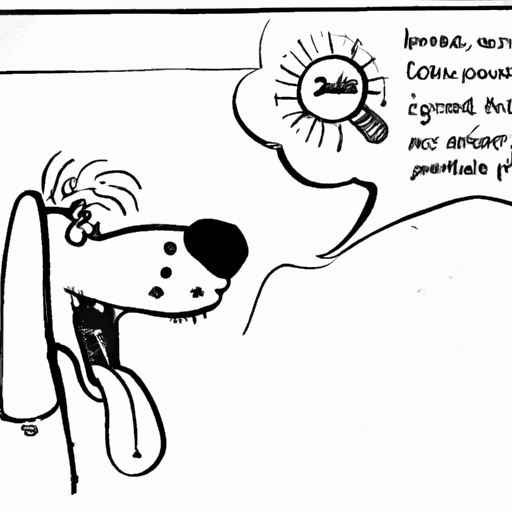As a dedicated caregiver to your canine companion, it’s important to understand the reasons behind their behaviors, one of which is panting. While panting is often seen as a normal behavior for dogs, it can also be a sign of distress. Let’s dive deeper into this topic in the following sections.
1. Understanding the Mechanism of Panting
Panting is a dog’s primary means of cooling off their bodies. Unlike humans who sweat through their skin, dogs mainly cool themselves off by panting. When your dog pants, they evaporate moisture from their tongues, nasal passages, and lining of their lungs, cooling themselves as air passes over these wet surfaces.
The Panting Process:
- Inhalation: Your dog breathes in air which circulates through the body, helping to cool internal organs.
- Evaporation: As your dog exhales, moisture from their mouth and throat evaporates, removing heat from their body.
- Cooling: The cool air then circulates throughout your dog’s body, lowering their overall body temperature.
2. Emotional Causes of Panting
Your dog’s panting might not always be due to physical exertion or heat. Sometimes, emotional factors such as stress, fear, or excitement can cause your dog to pant excessively.
- Stress: Similar to humans, dogs may pant when they feel stressed or anxious.
- Fear: Dogs often pant when they’re scared. This could be due to thunderstorms, fireworks, or unfamiliar environments.
- Excitement: Your dog may also pant when they’re excited, such as when you return home or they see their favorite toy.
3. Medical Causes of Panting
In some cases, your dog’s panting could indicate a more serious health issue. If your dog is panting excessively without any apparent reason, it’s advisable to consult a vet. Some common medical causes include:
| Medical Cause | Description |
|---|---|
| Heatstroke | A dangerous condition caused by overheating. |
| Heart Disease | Panting can be a sign of an underlying heart problem. |
| Cushing’s Disease | A condition caused by an excess of the hormone cortisol. |
4. How to Respond to Excessive Panting
If you notice your dog panting excessively, it’s essential to respond appropriately. Here are some steps you can take:
- Observation: Monitor your dog’s behavior closely. Are there any other symptoms such as lethargy, loss of appetite, or abnormal behavior?
- Cooling Down: If it’s a hot day or your dog has been exercising, help them cool down by providing water and a shady place to rest.
- Veterinary Attention: If the panting continues without an obvious cause, consult your vet immediately.
5. Preventing Excessive Panting
Prevention is always better than cure. Here are some tips to prevent excessive panting:
- Provide plenty of water and shade on hot days.
- Keep your dog’s weight in check. Obesity can lead to excessive panting.
- Regular veterinary check-ups can help detect any potential health issues early.
FAQs
Why does my dog pant at night?
Your dog may pant at night due to heat, discomfort, or anxiety. If this is a regular occurrence, it’s worth discussing with your vet.
Is panting a sign of pain in dogs?
Yes, excessive panting can sometimes be a sign of pain or discomfort in dogs. If you notice any sudden changes in your dog’s panting, consult your vet immediately.
Can panting be a sign of heart problems in dogs?
Yes, excessive or unexplained panting can be a symptom of heart problems in dogs. Always consult with your vet if you’re concerned about your dog’s panting.
Should I be worried if my dog is panting a lot?
If your dog is panting excessively without an obvious cause like heat or exercise, it’s a good idea to consult with your vet. It could indicate a health issue that needs attention.
Remember, as a caregiver, understanding your dog’s behavior can help you ensure they live a happy and healthy life. So, keep an eye out for signs and consult with professionals when necessary.



